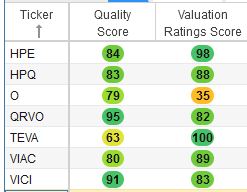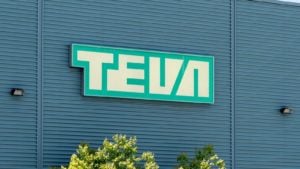When the stock market performs badly, led by the decline in the S&P 500 and Nasdaq, value investors should perk up. The lower stock prices get, the better the discount. Stocks that markets targeted as overvalued tend to fall the most. Yet what does overvalued mean, and how do we use that information to decide which stocks to buy? There are two considerations about overvaluation.
First, stocks that have relative overvaluation will fall more than the index when stock market participants panic. Those are potential stocks to buy because investors will reward companies with the strongest moat and growth momentum. Then the index falls, it pulls seemingly overvalued firms by more. Disillusioned investors who overpaid for shares at higher prices should review their investment thesis. Oftentimes, the original reason to buy the stock did not change. In this case, valuation changes only reflect the market’s sentiment shift.
Second, overvalued firms that relied on stock pumping will fall permanently. Speculators rely on money inflow lifting a stock higher using buying momentum. We’ve seen this in the last year with meme stocks tricking novice investors into buying a stock simply because it rose. As the saying goes, when the music stops playing, the speculator does not want to get left standing.
Here are seven stocks to buy are trading nowhere near an overvalued level:
- Hewlett Packard Enterprise (NYSE:HPE)
- HP Inc. (NYSE:HPQ)
- Realty Income (NYSE:O)
- Qorvo (NASDAQ:QRVO)
- Teva Pharmaceutical (NYSE:TEVA)
- ViacomCBS (NASDAQ:VIAC)
- VICI Properties (NYSE:VICI)

Those stocks to buy have strong quality and value.
In this table, Stock Rover data suggests that Teva and Hewlett Packard Enterprise have the best value. Realty Income, a REIT, has a weak value score that does not reflect its strong dividend payments.
Teva, a generic drug giant, offers fair quality for investors. Its return on investment will rise as it pays off its debt and sells new drug products having higher operating margins.
Stocks to Buy: Hewlett Packard Enterprise (HPE)

Investors flocked to HPE stock after the company posted quarterly earnings per share (EPS) of $1.91 on a GAAP measure. Revenue grew by 2% year-over-year to $7.4 billion.
Investors are adding their position on this turnaround value stock despite the stock near multi-year highs. For fiscal 2022, HPE said GAAP net EPS will be $1.24 to $1.38. Free cash flow will top $1.8 billion to $2 billion. Its stock buyback of at least $500 million re-affirms management’s confidence in the business. That is on top of the 12 cents a share quarterly dividend.
The supply chain constraints are disrupting tech firms. HPE bucked the trend in the fourth quarter by adding a very large five-year deal with a retailer. Chief Financial Officer Tarek Robbiati said that HPE will take over its entire network environment. It will transition this into a network-as-a-service environment.
With strong contract wins ahead, HPE’s growth prospects rise dramatically for the fiscal year 2022. In the next three years, the company will have a cumulative $6.5 billion to $7 billion in free cash flow. Expect HPE to raise its dividend and return capital to shareholders.
HP Inc. (HPQ)

Computer manufacturer HP (which spun off its enterprise business as HPE in 2015) is winning consumers over with its improved hardware. In the fourth quarter, revenue grew by 9.3% from the prior year. HP reported double-digit growth in revenue for personnel systems. Commercial PC sales grew by 25% YoY.
Although HP’s consumer PC sales fell by 3%, technology review sites are praising its products. For example, HP Omen is a well-built open system that lets customers upgrade with third-party products if needed. Its gaming and business notebooks are also earning favorable reviews. Despite the stock at highs, expect this firm to beat estimates and raise its outlook.
The chip shortage risks hurting HP’s ability to meet customer demand. The graphics card shortage will continue to limit high-end gaming system sales. Still, gamers are willing to buy base PCs first and then buy the GPU later.
In its Q4 presentation, HP said its innovation with the HP Presence launch would give customers a more immersive experience “bridging the digital and physical worlds.”
Stocks to Buy: Realty Income (O)

Realty Income reminded investors that it would put its cash to good use. On Dec. 2, it announced the acquisition of around $1.1 billion in properties. Realty also entered into agreements for purchasing more properties worth over $1.1 billion.
With $3.8 billion in acquired properties in 2021 and approximately $6 billion in its investment pipeline, O is nowhere near overvalued. The company recently closed its Vereit deal and a spin-off in Nov. 2021. The firm has strong growth momentum ahead.
The upcoming Federal Reserve rate hike may slow Realty Income’s stock momentum. Still, the Fed will keep a lid on inflation, slowing the rate hike cycle. That will lead to a steady rise in this REIT stock. Regardless of the macroeconomic risks, Realty has a history of increasing its dividend. In its Dec. 15 dividend announcement, Realty increased its dividend for the 114th time.
Qorvo (QRVO)

When Qorvo announced the acquisition of United Silicon Carbide, the stock dipped. The SiC power semiconductors acquisition is not a high-risk buy. Together with an aggressive stock buyback plan, management is signaling confidence in Qorvo’s prospects in the years ahead.
The Carbide acquisition will dilute investors initially. It will be accretive probably by the end of the next fiscal year. In the next few years, the unit will become a significant driver for Qorvo.
In the third quarter, Qorvo bought back $223 million shares. Between the second and third quarters it bought back $523 million of shares, or 110% of its free cash flow. The light outlook is outshining the company’s buyback optimism. Chief Financial Officer Mark Murphy said that the mobile business would slow sequentially. The supply chain disruption is limiting the availability of chipsets for customers. Since customers cannot use Qorvo’s product, it will need to wait for at least a quarter before the supply levels meet demand.
Investors are overreacting to Qorvo’s light outlook. The stock does not reflect the business rebound approaching in the coming quarters.
Stocks to Buy: Teva Pharmaceutical (TEVA)

Last month, the courts found Teva guilty in its role of fueling the prescription opioid epidemic. Although it will appeal the ruling, the fine would hurt Teva’s cash flow if it has to pay. A judge in California sided with Teva and other drug makers. The plaintiff sought up to $50 billion.
Teva’s core business is also showing signs of recovering. In the third quarter, it posted revenue of $3.9 billion and GAAP EPS of 26 cents. The $795 million in free cash flow will help Teva pay down its debt, which stands at $23.75 billion. This is down from $25.13 billion sequentially.
Teva will offset falling Copaxone sales with rising sales of Ajovy and Austedo. For example, in the U.S. Austedo sales growth is improving. Still, the Covid-19-related slowdown slowed the momentum. As lockdowns ease, expect sales to re-accelerate.
As the leading generic drug company globally, Teva is in a good position to supply high-quality medicines. It has the economies of scale that competitors lack. Once the opioid litigation overhang subsides, Teva stock will trade higher, closer to its fair value. Analysts have an average price target of $10.50.
ViacomCBS (VIAC)

ViacomCBS embraced the growth in Asia through a strategic partnership with CJ ENM. Through the deal, Paramount+ will debut in South Korea this year. It will bundle with TVING, CJ ENM’s streaming service. Furthermore, it will co-produce for original series and film market. This includes a content licensing and distribution deal across the two firms’ streaming services.
This year, VIAC stock set new distribution deals to bolster its content side of the business. Those distribution deals include bundled plans in the U.S. and the launch of Paramount+ in Europe. ViacomCBS is expanding its library of streaming movies and shows.
Investors sold off content streaming stocks in the last few weeks. This may prove ill-timed. ViacomCBS is doubling its streaming investment content compared to 2020 levels. That will strengthen the value proposition for Paramount+.
On Wall Street, the average price target is $47.33.
Stocks to Buy: VICI Properties (VICI)

Shareholders approved Vici’s proposal to issue stock connected to its MGM Growth Properties acquisition. When the deal closes in the first half of this year, the combined entity will become the largest experiential REIT in the U.S.
Vici is paying $17.2 billion for MGM Growth Properties. When the deal closes, it will enter into a master lease agreement with MGM. Properties such as the Mirage and Park MGM will account for nearly $900 million in total annual rent. The lease will start at 25 years. It will have three 10-year tenant renewal options.
Vici Properties posted revenue growing by 10.6% YoY in the third quarter. Adjusted funds from operations grew by 12.9% YoY to $257.4 million. For the next two quarters, Vici will record high costs due to the timing of MGM’s Venetian acquisition. Still, funds from operations will grow, which will help Vici pay down its debt.
VICI stock will look expensive for the next two quarters. After the merger closes, the numbers will improve and income investors will buy the stock.
On the date of publication, Chris Lau did not have (either directly or indirectly) any positions in the securities mentioned in this article. The opinions expressed in this article are those of the writer, subject to the InvestorPlace.com Publishing Guidelines.
Chris Lau is a contributing author for InvestorPlace.com and numerous other financial sites. Chris has over 20 years of investing experience in the stock market and runs the Do-It-Yourself Value Investing Marketplace on Seeking Alpha. He shares his stock picks so readers get original insight that helps improve investment returns.
